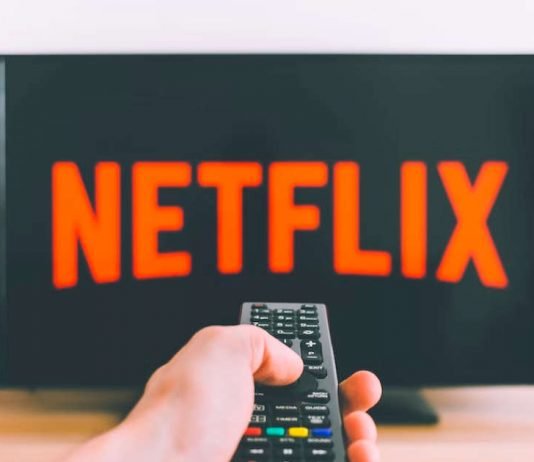The new generation of travelers values luxury differently compared to previous generations. They prioritize hotels that offer a high level of technology integration, which enhances their overall experience. Old-school luxuries, such as plush bedding and elegant furnishings, are still important, but technology has become a key factor in the definition of luxury for many travelers.
For the new generation, a hotel room is not just a place to sleep but an extension of their daily lifestyle. They expect a level of convenience and personalization that technology can provide. Every hotelier must step up to the plate, match the customer’s expectations, and surpass them.
This article goes over how installing nifty tech features can enable personalization and convenience in hotel rooms.
Utilizing Voice Command Features
Voice command features are increasingly being integrated into hotel rooms to provide guests with a more convenient and personalized experience. With the widespread use of voice-activated virtual assistants such as Amazon Alexa and Google Assistant, voice commands have become a familiar way for many people to interact with technology.
More than 72 percent of people have used voice search features in the past six months, and the demographic is heavily skewed towards the 18-34 age group. By incorporating this technology into hotel rooms, guests can enjoy hands-free control of various aspects of their stay.
One of the main benefits of voice command technology in hotel rooms is the ability to control lighting, temperature, and entertainment systems without physically interacting with buttons or remotes. This can be especially useful for guests who are busy or in a hurry and want to adjust the room to their preferences quickly.
Another advantage of voice commands is that guests with limited mobility or disabilities can use them. They can control various aspects of their stay using voice commands without physically moving around the room.
One can also use voice commands to make requests to hotel staff, such as ordering room service, arranging for housekeeping, or asking for directions to a nearby restaurant or attraction. This can save guests time and make their stay more convenient.
Ensuring Easy Casting On TV
The rise of streaming services has had a major impact on how guests consume entertainment in hotel rooms. In the past, hotels relied on in-room entertainment systems that offered a limited selection of TV channels and movies.
However, with the popularity of streaming services, such as Netflix, Hulu, and Disney+, guests now expect to be able to access their own content and watch shows and movies from their profiles.
2022 was the first year streaming services overtook cable TV, with more than 34.8% of total TV consumption. The total streaming usage is much higher when you consider that people use their services on multiple devices.
To meet this demand, hoteliers must provide casting solutions in their hotel rooms that allow guests to stream their content on the in-room entertainment system. One can achieve this by using a smart TV compatible with popular casting technologies such as Chromecast, Apple Airplay, or Miracast.
However, implementing a casting solution can be a complex and time-consuming process for hoteliers, especially those who need to become more familiar with the latest technology trends. This is where a third-party vendor can help. By working with a vendor specializing in hotel entertainment technology, hoteliers can receive support in selecting and implementing the right casting solution for their guests.
In addition to providing a more personalized entertainment experience for guests, casting solutions can help hotels differentiate themselves from their competitors and increase guest satisfaction. By providing a convenient and seamless way for guests to watch their content, hotels can enhance the overall quality of their in-room entertainment offerings.
Using Mobile Devices In Hotel Rooms
Utilizing mobile apps or installing tablets in hotel rooms can greatly enhance the guest experience by enabling new functionalities and providing a more convenient and personalized stay. Using a mobile app or tablet allows guests to control various aspects of their stay from the comfort of their room without interacting with hotel staff.
One of the key benefits of using a mobile app or tablet is the ability to change the temperature or lighting in the room. Guests can adjust the room to their desired comfort level, making their stay more relaxing and enjoyable. They can also use the app or tablet to view information about the hotel and its amenities, such as the restaurant menu or the location of nearby attractions.
Another advantage of mobile apps or tablets is ordering food and other amenities directly from the room. This can make the stay more comfortable for guests, as they do not have to physically go to the restaurant or front desk to make requests.
In addition, hotels can also use chatbots to provide a chatbox for guests to talk in the reception area. This allows guests to receive quick and convenient answers to any questions or concerns without leaving their room or waiting in line at the front desk.
Conclusion
The power of personalization in hotel technology is a game-changer in the hospitality industry. By providing guests with a more personalized and convenient experience, hotels can stand out in a competitive market and attract more customers.
Whether through voice command features, casting solutions, or mobile apps, hotels that embrace the latest technology trends can offer guests a more memorable and enjoyable stay.
Hotel technology is evolving rapidly, and the trend toward personalization will continue. Hoteliers who invest in technology tailored to their guests’ needs and preferences will be well-positioned to meet the demands of today’s travelers and stay ahead of the curve.
By providing a more personalized experience, hotels can build stronger relationships with their guests and increase customer loyalty and repeat business.
